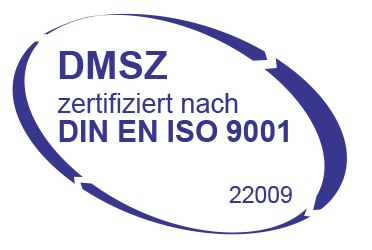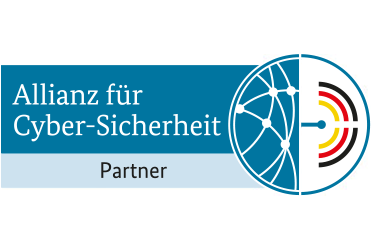Digitalization in manufacturing
Industry and manufacturing in transition
Table of contents

Take a targeted approach to digitalization in manufacturing – secure your competitive advantage now
The pressure on industrial and manufacturing companies is mounting: manufacturing processes are becoming more complex, skilled workers are in short supply, and at the same time, demands for efficiency, safety, and sustainability are increasing. Those who fail to go digital today risk falling behind tomorrow. The good news: the technologies for digitalizing manufacturing have long been available and ready for use.
Get started without any risk – the initial consultation is on us.

Current challenges in industry and manufacturing
- High cost pressure: Efficient production and administrative processes ensure competitiveness, but they also require budget.
- Lack of automation: Routine tasks tie up valuable capacity, while robots and automation can increase efficiency.
- Increasing IT security and compliance requirements: GDPR, ISO 27001, NIS2, and other regulations must become part of your corporate strategy.
- Sustainability and ESG: Energy savings, emissions reduction, and reporting will become mandatory starting in 2025.

Additional challenges on the path to digital manufacturing
- Data silos & lack of transparency: A consistent data strategy is essential for optimizing processes holistically.
- Legacy systems & missing interfaces: Outdated applications hinder innovation – a modernization plan with a smooth transition is needed.
- Skills shortage & knowledge transfer: Digital assistance systems and modern learning platforms for a future-proof company.
- Production interruptions & disruptions: Networked systems enable disruptions to be detected at an early stage.


Strong references
How to digitize your industrial or manufacturing company
Our solutions don't just work in theory and on paper. Find out how our customers have achieved greater efficiency in production.
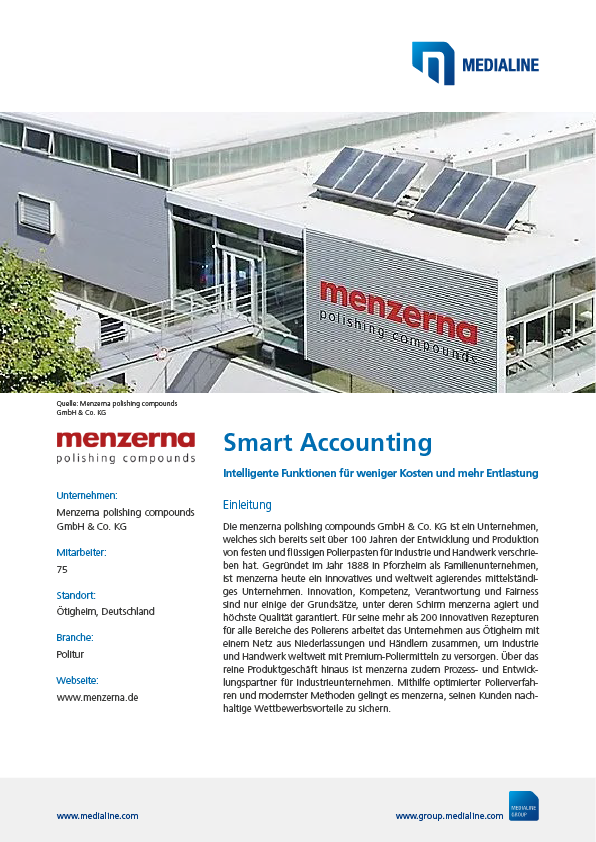
Success story
Digitization of the internal invoice process
Access to the ELO ECM Suite provides menzerna polishing compounds GmbH & Co. KG, a development and production company, with centralized access to incoming invoice processing. The result: accelerated and simplified processes and a sustainable reduction in the workload for employees.
Clarity in 2 minutes: Read the success story now!
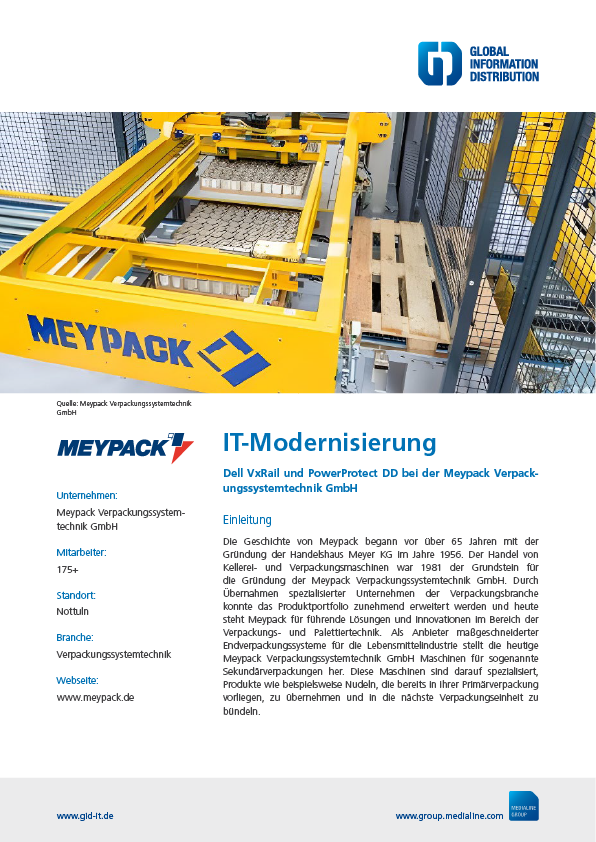
Success Story
Core renovation of the company's own data center
At Meypack Verpackungssystemtechnik GmbH, a company in the packaging industry, maintenance of the old infrastructure had not been optimally implemented for many years, resulting in hardware failures. With the new solution, modern data backup with sufficient storage space was implemented.
Get started without risk: Learn about IT modernization now!

From challenge to solution – with IT solutions as enablers
Investing in the right IT solution now lays the foundation for a digitized, efficient, and resilient value chain.
Our solutions create clear added value
- Efficiency & automation: Digital processes and automated workflows reduce errors, accelerate processes, and relieve your teams in their day-to-day work.
- Security & compliance: Robust security solutions protect your OT and IT systems holistically – legally compliant, fail-safe, and resilient to cyber risks.
- Flexibility & scalability: Modern IT infrastructures enable location-independent working – whether in the office or on the shop floor. At the same time, cloud solutions grow flexibly with your company.

Our portfolio at a glance
We have in-depth industry and production expertise that we use to deliver IT solutions that drive your production forward.
Portfolio highlights for industrial companies
AI & Modern Work
Business Software
Business Continuity
IT Services
IT Security
Managed Services
Unified Communications
Cloud Computing
Let's work together to digitize your production.
Medialine Group – Your partner at eye level
Individual requirements need strong partners
We are the IT partner to take on the challenges of digital transformation. As a strategic innovation driver, we contribute to the business success of our industrial and manufacturing customers with stable platforms, a holistic approach, and deep process understanding.
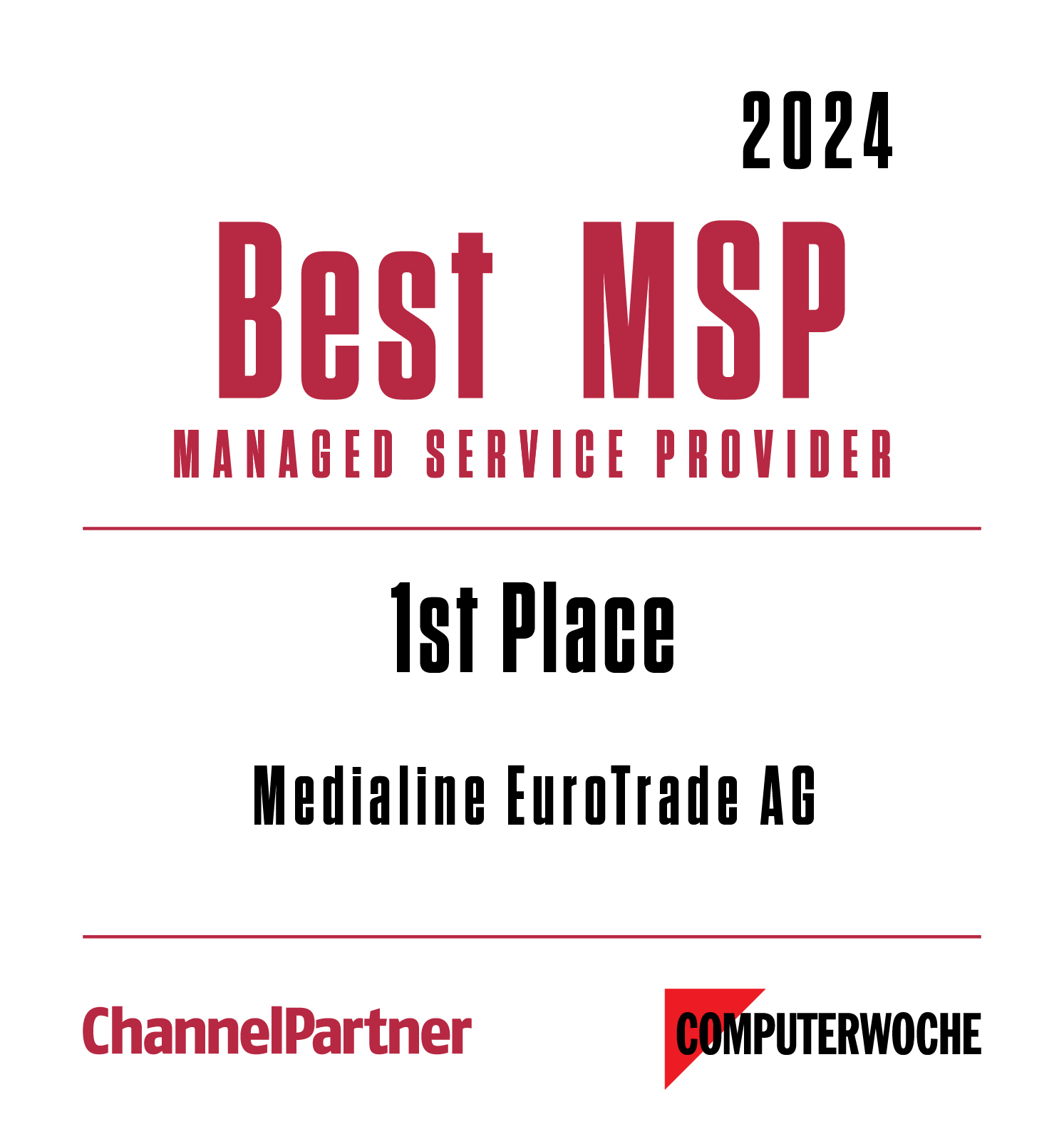
Contact request – your path to becoming a digital industrial and manufacturing company
Let's work together to find out how smart, customized IT solutions can make your production and business processes more efficient, secure, and future-proof. Our experts will advise you without obligation and look forward to hearing from you.
FAQ – Digitalization in manufacturing
Digitalization in manufacturing refers to the integration of digital technologies into production processes to increase efficiency, flexibility, and quality. This includes the use of sensors, automation, data analysis, and networked systems to optimize processes and enable real-time decisions.
Digitalization enables industrial and manufacturing companies to
- Increase efficiency: Automated processes reduce errors and increase productivity.
- Increase flexibility: Faster adaptation to market changes and individual customer requirements.
- Reduce costs: Optimized resource utilization and reduced downtime.
- Improve quality: Real-time monitoring enables early error detection.
- Promote sustainability: More efficient processes reduce energy consumption and material usage.
A structured approach includes
- Analysis of the current situation: Evaluation of current processes and technologies.
- Definition of objectives: Setting clear goals for digitization.
- Technology selection: Identification of suitable digital solutions.
- Pilot projects: Implementation in selected areas for testing.
- Scaling: Expansion of successful projects to other areas of the company.
Common challenges include
- Investment costs: Initial investments can be high, but they often pay for themselves through long-term savings.
- Employee acceptance: Change can be met with resistance; training and communication are crucial.
- Data security: Protecting sensitive data requires robust security measures.
- Technological complexity: Integrating new systems into existing infrastructures can be complex.
Careful planning and involvement of all stakeholders helps to overcome these challenges.
Yes, there are numerous funding programs at both the national and EU level that support industrial and manufacturing companies with digitization. These offer financial subsidies or low-interest loans for investments in digital technologies and processes.









